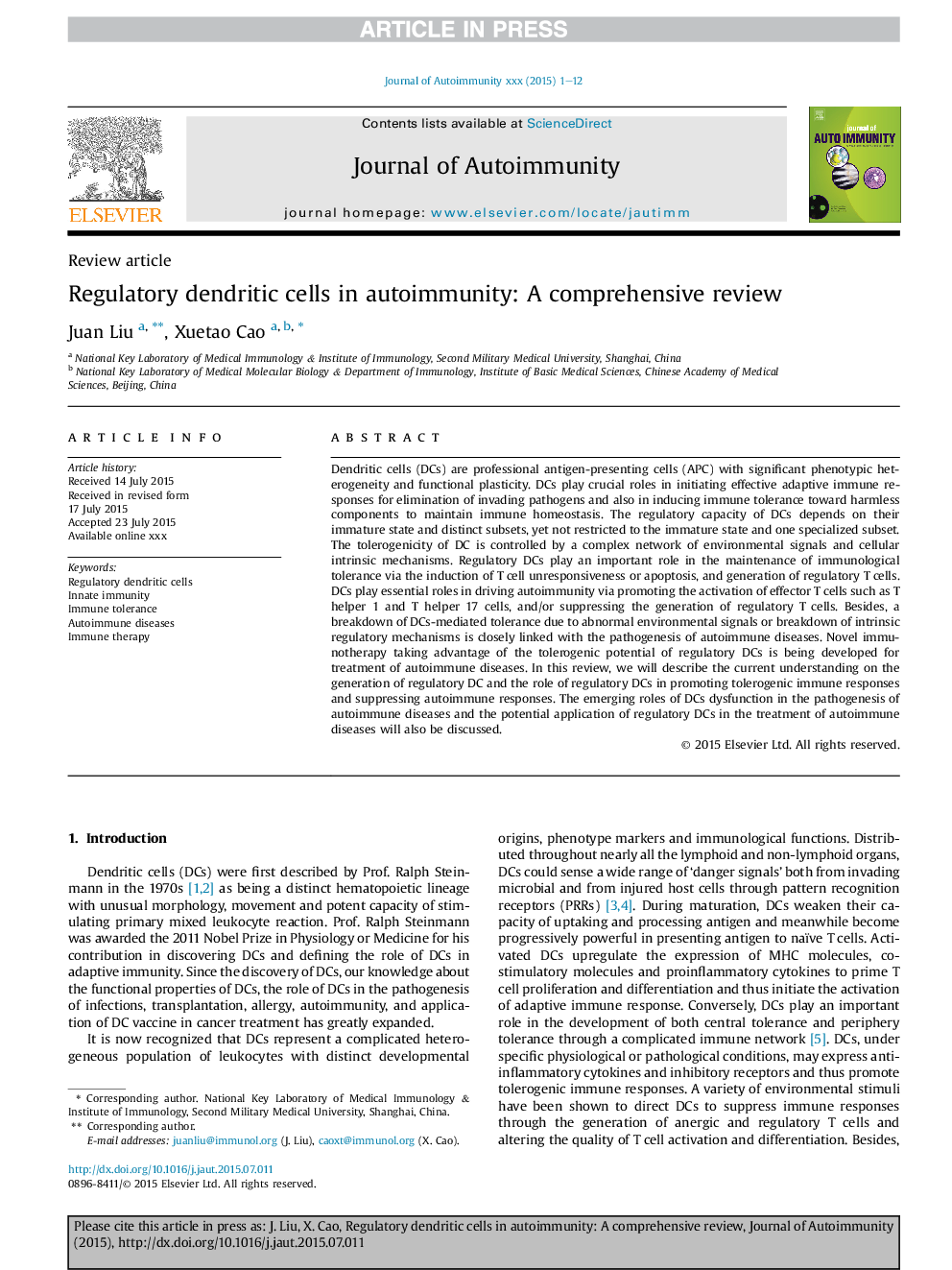| Article ID | Journal | Published Year | Pages | File Type |
|---|---|---|---|---|
| 6119200 | Journal of Autoimmunity | 2015 | 12 Pages |
Abstract
Dendritic cells (DCs) are professional antigen-presenting cells (APC) with significant phenotypic heterogeneity and functional plasticity. DCs play crucial roles in initiating effective adaptive immune responses for elimination of invading pathogens and also in inducing immune tolerance toward harmless components to maintain immune homeostasis. The regulatory capacity of DCs depends on their immature state and distinct subsets, yet not restricted to the immature state and one specialized subset. The tolerogenicity of DC is controlled by a complex network of environmental signals and cellular intrinsic mechanisms. Regulatory DCs play an important role in the maintenance of immunological tolerance via the induction of T cell unresponsiveness or apoptosis, and generation of regulatory T cells. DCs play essential roles in driving autoimmunity via promoting the activation of effector T cells such as T helper 1 and T helper 17 cells, and/or suppressing the generation of regulatory T cells. Besides, a breakdown of DCs-mediated tolerance due to abnormal environmental signals or breakdown of intrinsic regulatory mechanisms is closely linked with the pathogenesis of autoimmune diseases. Novel immunotherapy taking advantage of the tolerogenic potential of regulatory DCs is being developed for treatment of autoimmune diseases. In this review, we will describe the current understanding on the generation of regulatory DC and the role of regulatory DCs in promoting tolerogenic immune responses and suppressing autoimmune responses. The emerging roles of DCs dysfunction in the pathogenesis of autoimmune diseases and the potential application of regulatory DCs in the treatment of autoimmune diseases will also be discussed.
Related Topics
Life Sciences
Immunology and Microbiology
Immunology
Authors
Juan Liu, Xuetao Cao,
